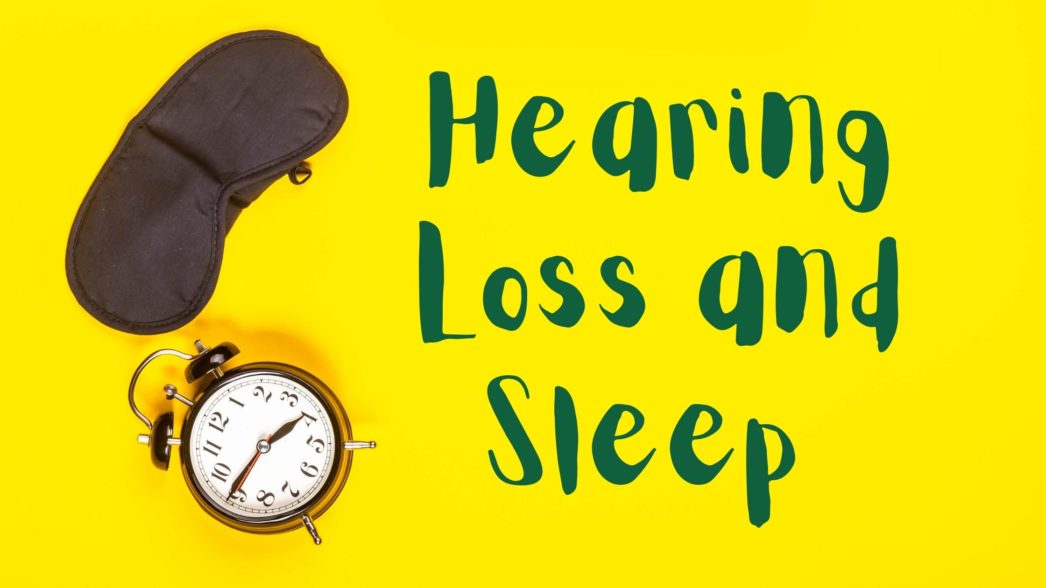Despite amazing advances in sleep research and understanding, it remains a quite mysterious phenomenon. We require sleep to rest our bodies and minds, and our brains don’t completely shut down while we sleep. Rather, they are working behind the scenes to process memories, to maintain autonomic bodily functions, and to restore the cognitive process of understanding the sensory world. Although we do not see more than shifting shades of light while we sleep, our ears remain open to the world. Alarm clocks take advantage of this sensory capacity of hearing, and we use hearing during sleep to wake up to emergencies, as well.
This function of hearing allows us to follow a first line of defense against dangers, and many people require relative or total quiet in order to get a good night of sleep. With these principles in mind, how is hearing loss related to sleep? On the one hand, it might seem like hearing loss provides a feeling of peace and quiet that facilitates good sleep. Yet, research has shown that many people experience insomnia alongside hearing loss.
Let’s unpack the relationship between hearing loss and sleep, as well as the complexities that come from sleeping difficulty and hearing loss.
Insomnia and Hearing Loss
Although some people do find that hearing loss actually assists in getting a good night’s sleep, others have found a diminished ability to fall asleep and remain asleep. Why are there such competing experiences? One explanation has to do with the relationship between hearing loss and mental health conditions like anxiety and depression. Those who have hearing loss have higher rates of both anxiety and depression, and these conditions are related to sleep difficulties in many regards. Though some people with depression tend to sleep more than others, they can also experience insomnia and sleep disturbances at the same time.
Anxiety has been shown to relate to sleep disorders in many cases, so it is possible that the apparent connection between hearing loss and sleep disturbances actually has to do with the common bond of these mental health conditions. Despite this possibility, others do find that hearing loss causes insomnia, sometimes due to the worry that something will happen during sleep and they will not become aware of it. The diversity of experiences of hearing loss comes alongside the diversity of experiences of insomnia to make it difficult to relate these two in a reliable way.
Insomnia and Tinnitus
When it comes to tinnitus, a much stronger relationship is evident. Those who have tinnitus show much higher rates of sleep disorders and disturbances, including insomnia. The reasoning is more straightforward than with hearing loss. The persistent sound of tinnitus can feel like trying to sleep in a noisy room for some people. Their struggle to fall asleep can be inhibited by the sense that they are awoken from sleep by the sound of tinnitus. Some people with tinnitus try to mask the sound through the use of white noise generators, nature sound machines, fans, or quiet televisions in the background. These sounds can mask tinnitus in some cases, but they can also contribute to sleep disturbances at the same time.
Hearing Loss Treatment and Sleep
In most cases, hearing aids are not designed to be worn at night. The most common models are meant to be removed before falling asleep, so what effect could they have on insomnia? Despite the seeming disconnect, many people report better sleep habits once they receive treatment for hearing loss. They can more easily fall asleep when they have spent the day with amplified sound, only to remove their aids and return to a quieter sonic environment. The case of tinnitus is not so simple, and many people have both hearing loss and tinnitus at the same time.
If you have untreated hearing loss and a sleep disorder such as insomnia, you might want to pursue hearing assistance for the possible benefit it might provide to your sleep. Though not all people find that hearing aids alleviate insomnia, enough people do that you can inquire into the potential benefits. The further benefits of treatment for hearing loss that include emotional wellbeing, mental health, and cognitive functioning are all the more reason to make the call today.


